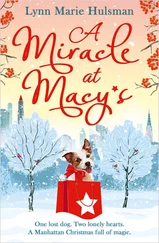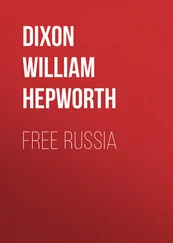Nikolai Nekrasov - Who Can Be Happy and Free in Russia?
Здесь есть возможность читать онлайн «Nikolai Nekrasov - Who Can Be Happy and Free in Russia?» весь текст электронной книги совершенно бесплатно (целиком полную версию без сокращений). В некоторых случаях можно слушать аудио, скачать через торрент в формате fb2 и присутствует краткое содержание. Год выпуска: 2005, Жанр: Поэзия, на английском языке. Описание произведения, (предисловие) а так же отзывы посетителей доступны на портале библиотеки ЛибКат.
- Название:Who Can Be Happy and Free in Russia?
- Автор:
- Жанр:
- Год:2005
- ISBN:нет данных
- Рейтинг книги:3 / 5. Голосов: 1
-
Избранное:Добавить в избранное
- Отзывы:
-
Ваша оценка:
- 60
- 1
- 2
- 3
- 4
- 5
Who Can Be Happy and Free in Russia?: краткое содержание, описание и аннотация
Предлагаем к чтению аннотацию, описание, краткое содержание или предисловие (зависит от того, что написал сам автор книги «Who Can Be Happy and Free in Russia?»). Если вы не нашли необходимую информацию о книге — напишите в комментариях, мы постараемся отыскать её.
Who Can Be Happy and Free in Russia? — читать онлайн бесплатно полную книгу (весь текст) целиком
Ниже представлен текст книги, разбитый по страницам. Система сохранения места последней прочитанной страницы, позволяет с удобством читать онлайн бесплатно книгу «Who Can Be Happy and Free in Russia?», без необходимости каждый раз заново искать на чём Вы остановились. Поставьте закладку, и сможете в любой момент перейти на страницу, на которой закончили чтение.
Интервал:
Закладка:
They see just before them 90
A meek little fellow
Most busily digging
A hole in the road.
"Now, what are you doing?"
"A grave I am digging
To bury my mother!"
"You fool!—Where's your mother?
Your new coat you've buried!
Roll into the ditch,
Dip your snout in the water. 100
'Twill cool you, perhaps."
"Let's see who'll pull hardest!"
Two peasants are squatting,
And, feet to feet pressing,
Are straining and groaning,
And tugging away
At a stick held between them.
This soon fails to please them:
"Let's try with our beards!"
And each man then clutches 110
The jaw of the other,
And tugs at his beard!
Red, panting, and writhing,
And gasping and yelping,
But pulling and pulling!
"Enough there, you madmen!"…
Cold water won't part them!
And in the ditch near them
Two women are squabbling;
One cries, "To go home now 120
Were worse than to prison!"
The other, "You braggart!
In my house, I tell you,
It's worse than in yours.
One son-in-law punched me
And left a rib broken;
The second made off
With my big ball of cotton;
The cotton don't matter,
But in it was hidden 130
My rouble in silver.
The youngest—he always
Is up with his knife out.
He'll kill me for sure!"
"Enough, enough, darling!
Now don't you be angry!"
Is heard not far distant
From over a hillock—
"Come on, I'm all right!"
A mischievous night, this; 140
On right hand, on left hand,
Wherever the eye falls,
Are sauntering couples.
The wood seems to please them;
They all stroll towards it,
The wood—which is thrilling
With nightingales' voices.
And later, the high-road
Gets more and more ugly,
And more and more often 150
The people are falling,
Are staggering, crawling,
Or lying like corpses.
As always it happens
On feast days in Russia—
No word can be uttered
Without a great oath.
And near to the tavern
Is quite a commotion;
Some wheels get entangled 160
And terrified horses
Rush off without drivers.
Here children are crying,
And sad wives and mothers
Are anxiously waiting;
And is the task easy
Of getting the peasant
Away from his drink?
Just near to the sign-post
A voice that's familiar 170
Is heard by the peasants;
They see there the Barin
(The same that helped Vavil,
And bought him the boots
To take home to his grandchild).
He chats with the men.
The peasants all open
Their hearts to the Barin;
If some song should please him
They'll sing it through five times; 180
"Just write the song down, sir!"
If some saying strike him;
"Take note of the words!"
And when he has written
Enough, he says quietly,
"The peasants are clever,
But one thing is bad:
They drink till they're helpless
And lie about tipsy,
It's painful to see." 190
They listen in silence.
The Barin commences
To write something down
In the little black note-book
When, all of a sudden,
A small, tipsy peasant,
Who up to that moment
Has lain on his stomach
And gazed at the speaker,
Springs up straight before him 200
And snatches his pencil
Right out of his hand:
"Wait, wait!" cries the fellow,
"Stop writing your stories,
Dishonest and heartless,
About the poor peasant.
Say, what's your complaint?
That sometimes the heart
Of the peasant rejoices?
At times we drink hard, 210
But we work ten times harder;
Among us are drunkards,
But many more sober.
Go, take through a village
A pailful of vodka;
Go into the huts—
In one, in another,
They'll swallow it gladly.
But go to a third
And you'll find they won't touch it!
One family drinks, 221
While another drinks nothing,
Drinks nothing—and suffers
As much as the drunkards:
They, wisely or foolishly,
Follow their conscience;
And see how misfortune,
The peasants' misfortune,
Will swallow that household
Hard-working and sober! 230
Pray, have you seen ever
The time of the harvest
In some Russian village?
Well, where were the people?
At work in the tavern?
Our fields may be broad,
But they don't give too freely.
Who robes them in spring-time,
And strips them in autumn?
You've met with a peasant 240
At nightfall, perchance,
When the work has been finished?
He's piled up great mountains
Of corn in the meadows,
He'll sup off a pea!
Hey, you mighty monster!
You builder of mountains,
I'll knock you flat down
With the stroke of a feather!
"Sweet food is the peasant's! 250
But stomachs aren't mirrors,
And so we don't whimper
To see what we've eaten.
"We work single-handed,
But when we have finished
Three partners [20] The tax collector, the landlord, and the priest.
are waiting
To share in the profits;
A fourth [21] Fire.
one there is, too,
Who eats like a Tartar—
Leaves nothing behind. 260
The other day, only,
A mean little fellow
Like you, came from Moscow
And clung to our backs.
'Oh, please sing him folk-songs'
And 'tell him some proverbs,'
'Some riddles and rhymes.'
And then came another
To put us his questions:
How much do we work for? 270
How much and how little
We stuff in our bellies?
To count all the people
That live in the village
Upon his five fingers.
He did not ask how much
The fire feeds the wind with
Of peasants' hard work .
Our drunkenness, maybe,
Can never be measured, 280
But look at our labour—
Can that then be measured?
Our cares or our woes?
"The vodka prostrates us;
But does not our labour,
Our trouble, prostrate us?
The peasant won't grumble
At each of his burdens,
He'll set out to meet it,
And struggle to bear it; 290
The peasant does not flinch
At life-wasting labour,
And tremble for fear
That his health may be injured.
Then why should he number
Each cupful of vodka
For fear that an odd one
May topple him over?
You say that it's painful
To see him lie tipsy?— 300
Then go to the bog;
You'll see how the peasant
Is squeezing the corn out,
Is wading and crawling
Where no horse or rider,
No man, though unloaded,
Would venture to tread.
You'll see how the army
Of profligate peasants
Is toiling in danger, 310
Is springing from one clod
Of earth to another,
Is pushing through bog-slime
With backs nearly breaking!
Интервал:
Закладка:
Похожие книги на «Who Can Be Happy and Free in Russia?»
Представляем Вашему вниманию похожие книги на «Who Can Be Happy and Free in Russia?» списком для выбора. Мы отобрали схожую по названию и смыслу литературу в надежде предоставить читателям больше вариантов отыскать новые, интересные, ещё непрочитанные произведения.
Обсуждение, отзывы о книге «Who Can Be Happy and Free in Russia?» и просто собственные мнения читателей. Оставьте ваши комментарии, напишите, что Вы думаете о произведении, его смысле или главных героях. Укажите что конкретно понравилось, а что нет, и почему Вы так считаете.











